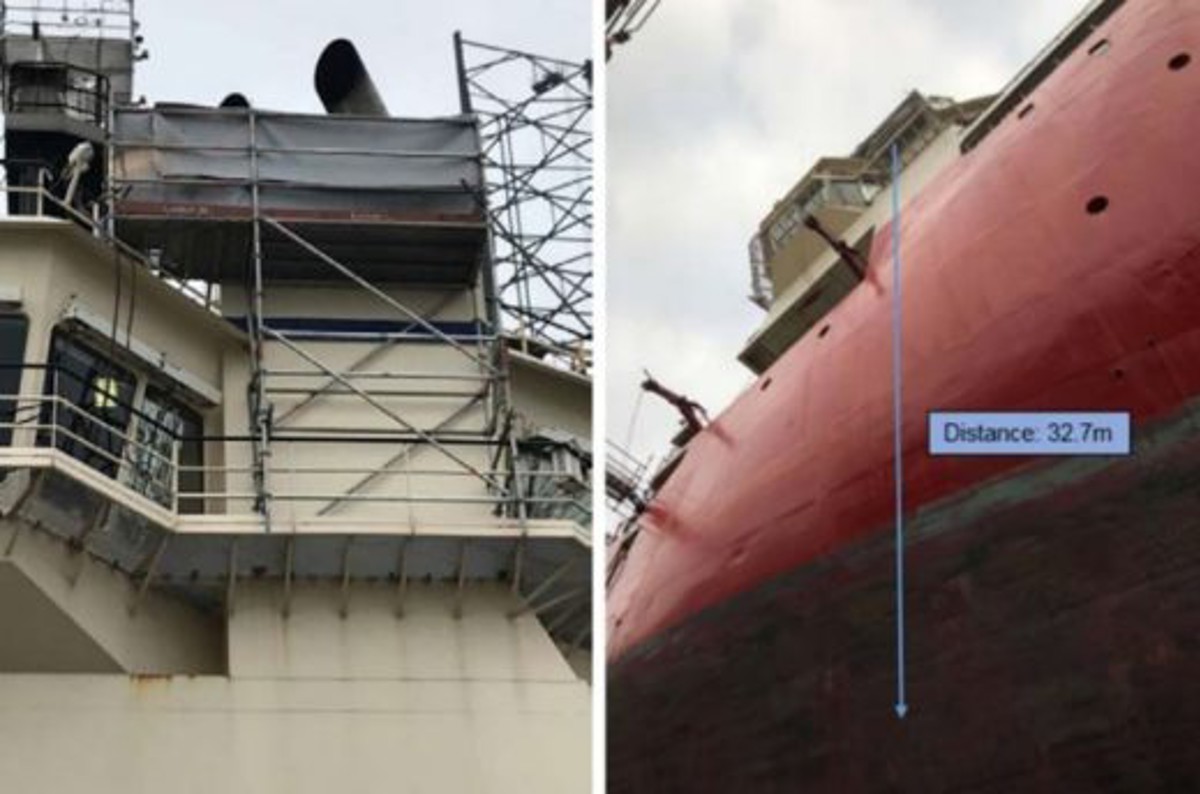Near miss: Dropped magnet during dry docking
- Safety Flash
- Published on 16 July 2019
- Generated on 7 February 2026
- IMCA SF 17/19
- 2 minute read
Jump to:
There was a dropped object near miss incident involving a magnet which was used by subcontractors during hot work operations.
What happened?
The incident occurred during a dry docking. Part of the scope of work involved hot work, grinding and gouging, to be carried out from scaffolding put up against the ships funnel. As a dropped object prevention measure, the scaffolding had been partially enclosed on three sides, with the fourth side being against the funnel.
During an inspection of ongoing work, it was noted that sparks were escaping the fire protection and it was requested that the gap in the protection was closed. It was at this time, while the fire protection was being adjusted, that an object fell from the scaffold to the dock; a drop of 32 m. The object was later identified as being a magnet which had been used to hold fire protection against the ships funnel. There was no damage and no injuries.

What went wrong? What were the causes?
- The worksite was directly above the dock and no barriers had been placed on the dock to prevent workers from gaining access to the area directly below the worksite.
- Sub-contractors were using magnets on site and at height without any secondary retention in place. This was not known to the vessel crew.
- The magnets in use had been engineered to allow fitting of eyelets for secondary retention, but the fitting of secondary retention eyelets had not been considered by the shipyard.
What lessons were learned?
- Our member noted that there was anecdotal evidence that magnets are routinely used in shipyards for securing against the ship superstructure. This should be taken into account on future worksites.
- Ensure that all equipment being used at height is identified and suitable dropped object prevention controls are in place.
Members may wish to refer to:
- IMCA HSS032, M221 – Guidance on safety in shipyards
Related Safety Flashes
-
IMCA SF 10/08
9 June 2008
-
IMCA SF 15/14
8 September 2014
IMCA Safety Flashes summarise key safety matters and incidents, allowing lessons to be more easily learnt for the benefit of the entire offshore industry.
The effectiveness of the IMCA Safety Flash system depends on the industry sharing information and so avoiding repeat incidents. Incidents are classified according to IOGP's Life Saving Rules.
All information is anonymised or sanitised, as appropriate, and warnings for graphic content included where possible.
IMCA makes every effort to ensure both the accuracy and reliability of the information shared, but is not be liable for any guidance and/or recommendation and/or statement herein contained.
The information contained in this document does not fulfil or replace any individual's or Member's legal, regulatory or other duties or obligations in respect of their operations. Individuals and Members remain solely responsible for the safe, lawful and proper conduct of their operations.
Share your safety incidents with IMCA online. Sign-up to receive Safety Flashes straight to your email.


